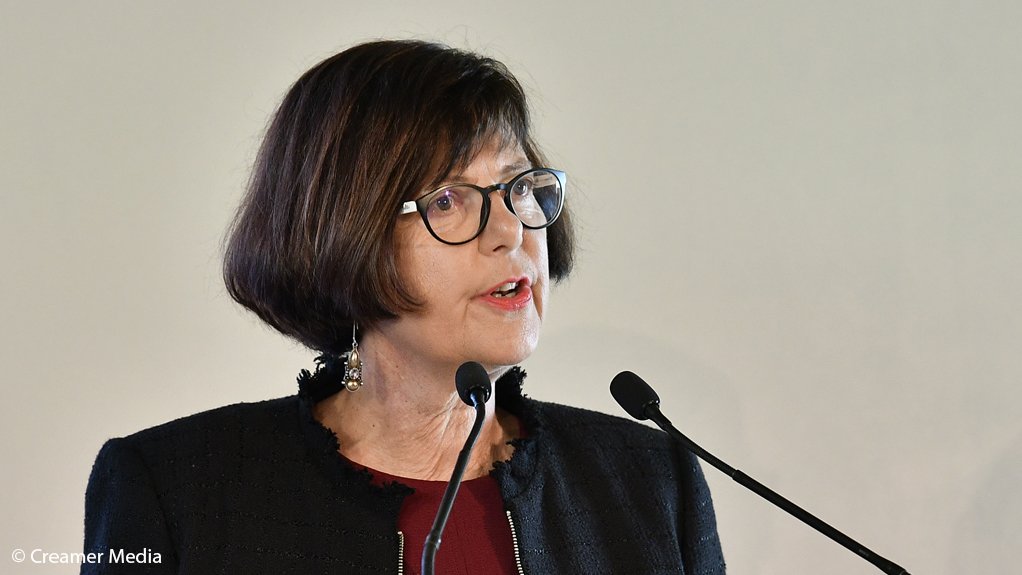The Department of Trade, Industry and Competition (DTIC) has been designated as the “single department” referred to in the recently published State of Disaster (SoD) regulations to coordinate the “streamlining and expediting of applications and decision-making procedures for regulatory processes related to energy generation projects”.
The appointment is catered for under Regulation 5(1)(e) and the Presidency’s Rudi Dicks reports that the clause is in line with the National Energy Crisis Committee’s initiative to establish a one-stop shop within government specifically to expedite regulatory approvals for electricity projects.
Speaking at a briefing hosted to elaborate on the SoD regulations – eventually published on February 27, more than two weeks after the SoD was officially declared – Dicks said the DTIC had been selected because there was already an existing one-stop shop at the department for the registration of businesses.
“We have piggy-backed on that structure so the reporting ministry will be the Trade, Industry and Competition Ministry.”
The one-stop shop would be formally launched once the necessary intra-governmental processes had been finalised and Dicks argued that it would allow for “energy applications to be processed through one entry point” so that projects could enter construction as soon as possible.
Opponents to the SoD and the regulations are unlikely to be appeased by the DTIC’s appointment, given some of the heavy-handed directions that emerged from the department during the Covid SoD. There is likely to be some relief, however, that neither the cooperative governance nor energy departments were selected to perform the function.
Government confirmed that it had already been notified of two legal objections to the SoD.
NO BLANKET ENVIRO EXEMPTION
Forestry, Fisheries and the Environment Minister Barbara Creecy said her department was already participating in one-stop-shop processes for the streamlining of approvals, but stressed that no “blanket exemption” from environmental legislation was envisaged during the SoD.
Any environmental exemptions granted under yet-to-be-published directions would be approved on a “case-by-case basis”.
She also stressed that limiting any exemptions to the period of the SoD represented a built-in safeguard. The SoD has been implemented for three months but is likely to be extended, as was the case during Covid.
“We are looking at developing directions that would enable expedited procedural requirements for environmental authorisation,” Creecy reported, indicating that the accelerated approval processes hitherto applied only to Strategic Integrated Projects (SIP) could be extended to all electricity projects.
Environmental approvals for SIP projects are provided within 57 days, rather than 107 days that theoretically apply to all other projects.
The public participation period for electricity projects could also be shortened from 30 to 14 days and Creecy reported that some projects might be allowed to proceed on the basis of a basic assessment process rather than a full scoping environmental impact assessment (EIA).
The unit that oversees EIAs would also shorten reporting timelines and was likely to give priority attention to electricity-related projects during the SoD.
“The regulations in themselves do not provide exemption from environmental law and it’s not our intention to start producing blanket exemption from those provisions.
“What we recognise is that there may be certain instances where this is required and on a case-by-case basis we would be advised by our legal practitioners how best to deal with that situation to shorten the prescribed timeframes for decision-making.”
Creecy also stressed that she had not yet received any application for exemption from environmental legislation and regulation, including any application from Eskom to exempt the Kusile power station to temporarily by-pass its flue-gas desulphurisation system so as to enable three inoperable units to return to service using temporary stacks.
Interim Eskom CEO Calib Cassim reported that the board had given its approval for the management to apply for such an exemption and indicated that the formal application should be submitted on March 3.
Meanwhile, Health Minister Joe Phaahla said his department was seeking to ensure that the exemption from the loadshedding of health facilities provided for in the SoD was implemented.
“The department has provided Eskom with a list of 213 hospitals to be considered for possible exclusion, 76 have been exempted, 26 directly supplied by Eskom and 50 by municipalities,” he said.
Business plans were being prepared for the 137 other health facilities that were being prioritised for exemption from loadshedding, with the cost associated with exempting the 46 hospitals currently supplied directly by Eskom estimated at more than R350-million.
The final cost of exempting the other 91, which are supplied by municipalities, was still being calculated, and Phaahla indicated that final business plans should be completed by the end of March.
EMAIL THIS ARTICLE SAVE THIS ARTICLE ARTICLE ENQUIRY
To subscribe email subscriptions@creamermedia.co.za or click here
To advertise email advertising@creamermedia.co.za or click here











